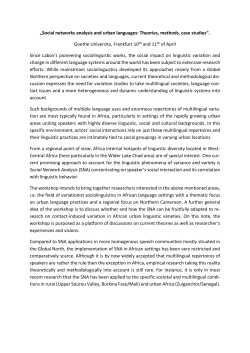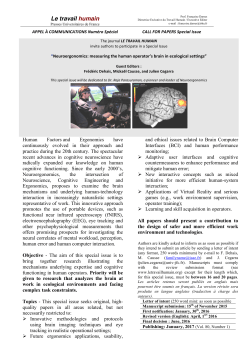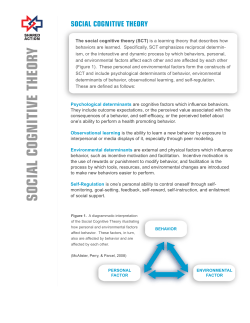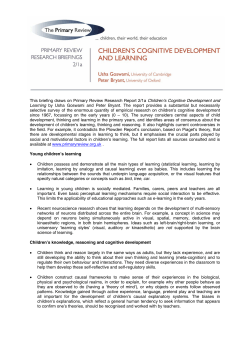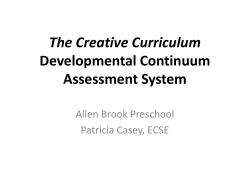
15th Annual Graduate Student Symposium
School of Languages and Cultures 15th Annual Graduate Student Symposium March 6-7, 2015 Purdue University West Lafayette, Indiana slcsymposiumpurdue@gmail.com Mind, Body, and (Con)Text: Cognitive Approaches to Literature and Linguistics Keynote Speakers The processes of meaning and understanding in language, and the diversity of the languages of the world, have always fascinated me, and have guided my linguistic research. Meaning and understanding happen in interaction in language use: meaning creation is an active process . Diversity in language requires that we place linguistic variation at the center of our models of grammar. Linguistic variation is also a product of language in use. Grammatical variation forces one to rethink how we construct syntactic arguments in fundamental ways . Trying to pull together these two strands has led me to a framework for understanding how language works that is inspired by population and selection models from evolutionary biology. Although my grammatical and linguistic interests range broadly, my chief areas of interest are verbal semantics , and syntactic categories and the constructions that define them. Dr. Mark Bruhn Regis University Emily Dickinson once wrote “If I feel physically as if the top of my head were taken off, I know that is poetry.” Dickinson here suggests that literary reading stimulates unusual, and perhaps otherwise unattainable, cognitive effects. My research focuses on these effects, especially as described and produced by English Romantic poets such as Samuel Taylor Coleridge, John Keats, Percy Bysshe Shelley, and William Wordsworth. I am particularly interested in how the cognitive theories and poetic practices of the Romantic era can inform present-day research in cognitive-neuroscience. Dr. William Croft University of New Mexico And Guest Speaker: Dr. Emily Troscianko Oxford University My current research project draws on my previous work in cognitive literary studies to explore the relationships between mental health (specifically eating disorders) and fictionreading, involving theoretical, empirical, and outreach work in collaboration with the eatingdisorders charity Beat. SPONSORED BY Vista Higher Learning, School of Languages and Cultures, Department of Spanish and Portuguese, College of Liberal Arts, Department of German and Russian, Comparative Literature Program, Department of French, Anthropology Department and Cengage Questions?: Katie Ayers ayersk@purdue.edu and Felipe Fiuza ffiuza@purdue.edu, Symposium Co-chairs
© Copyright 2025








